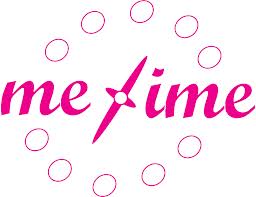Sherry Gaba LCSW, Psychotherapist, Life & Recovery Coach is featured Celebrity Rehab on VH1. Sherry is the author of “The Law of Sobriety” which uses the law of attraction to recover from any addiction. Please download your free E books at www.sherrygaba.com Contact Sherry for webinars, teleseminars, coaching packages and speaking engagements. Listen to Sherry on “A Moment of Change with Sherry Gaba”on CBS Radio. Are you a Love Addict? Take Sherry’s quiz for a free eBook Filling the Empty Heart: 5 Keys to Transforming Love Addiction. Sop Attracting Damaged Relationships – Get the Love You Truly Deserve! Free Coaching Session http://www.sherrygaba.com/offers/group
Everyone has heard the term “gateway drug”. In essence a gateway drug is a non-addictive drug or a socially acceptable drug that some researchers and addiction experts believe may prime the brain and the person to accept the use of harder, more addictive drugs in the future. Often when people start using these gateway drugs, which could include alcohol, they get a lot of personal rewards. They get attention, become more socially outgoing and meet new people. They feel better about themselves, however temporarily, and are positively reinforced.
However, there are different types of addictions besides the devastating alcohol and drug problems that so many people face on a daily basis. There are lots of addictions that are hidden and have no obvious symptoms or that may even be socially acceptable. These are the “soft addictions” like shopping, texting, pornography or even food. Given enough time do these so called soft addictions actually become gateway behaviors to creating more and more addictive behaviors?
Everyone can become addicted to something; it may just be something that is seen as healthy or positive. How many people do you know that are addicted to their job, addicted to working out, addicted to their kids or addicted to having the latest technology or gadget? These types of addictive behaviors may be ruining their lives, sense of self-worth and self-esteem in ways that are very similar to drug use, gambling or out of control alcohol consumption.
To understand if a behavior, even one that is positive, is addictive or may be a gateway to an addictive behavior consider the following:
- How do you feel if you don’t do the behavior?
People that are addicted to a behavior/activity become extremely upset and irritated if it cannot happen. They may engage in negative self-talk or lash out at the people or situation that prevented it from occurring.
- Do you become anxious or agitated if a change in plans prohibits you from doing the behavior?
Sometimes life happens. If you cannot deviate from your schedule or even skip that behavior or activity for one day you have a soft addiction. This is different than knowing, for example, that you need to make time to exercise. It is total inflexibility in adjusting life to your exercise schedule.
- Is the behavior more important than my work, family, friends, personal commitments or living my life?
Would you turn down time with your family, a fun event or interacting with people you care about because you would feel better doing the activity or behavior? If this is the case it is definitely an addiction and not something that is just important to you.
Preventing these gateway behaviors from becoming serious addictions takes recognition of the problem. If you have concerns talk to an addiction specialist, coach or therapists and get back on track to living your life to the fullest.



